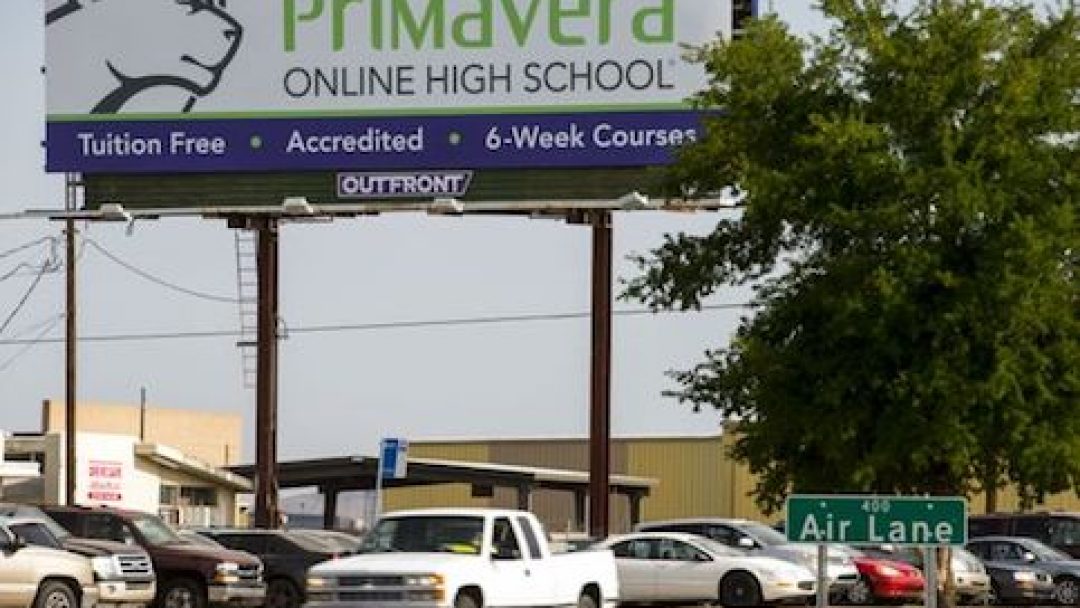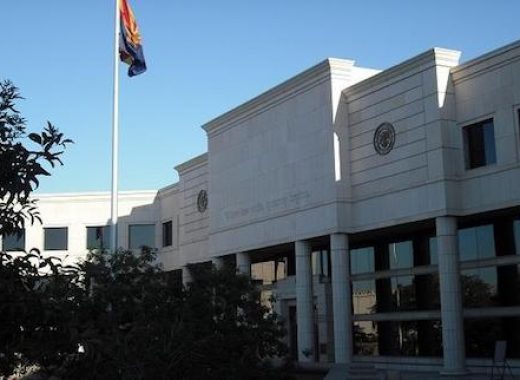A recent investigation by Arizona Republic into the financial dealings at a premier online school have prompted new remarks from Arizona Attorney General Mark Brnovich. Brnovich is calling for more oversight over charter schools throughout the state due to recent findings from the Republic investigation. According to the Republic, Primavera online charter school paid Chief Executive Damian Creamer $8.8 million in shareholder distributions while having a dropout rate nearly 10 times the state average. The school also used its share of state education funds for an investment portfolio, rather than using that money to fund the school, pay teachers, and reduce class sizes.
“I’m not only shocked, but I’m disappointed,” Brnovich told The Republic. “When you see public money go to line the pockets of someone who is supposed to help students become a millionaire, I can’t believe it’s not a crime.” While it is a re-election year for Brnovich, he says that he has made his views public to inspire other candidates to also pursue legislation that essentially reforms how charter schools are funded and monitored.
“As a taxpayer and as the attorney general, there has to be a mechanism in place to make sure that charter schools … operators are not enriching themselves at the expense of students,” said Brnovich, who has two daughters in charter schools. “You shouldn’t become rich feeding at the public trough.”
Transparency is Key
While traditional district schools are bound by conflict-of-interest laws and procurement requirements, charter schools in the state are exempt from such oversight. The state laws need an update in order to allow the Office of the Attorney General to properly investigate charter schools in the same way that public schools are subject to oversight.
Brnovich believes that legislation that allows the finances of charter schools to be investigated by the state auditor general, requires charter schools to separate public funds from private funding and gives the Arizona State Board for Charter Schools more oversight powers is key to effectively prevent mismanagement of funding.
Traditional district schools typically receive nearly $2,000 less per student than charter schools receive from public funds. Current law also allows for-profit companies to own charter schools, creating room for profit margins to be prioritized over education.
In a statement, Brnovich said, “If the Auditor General can’t get in to look at the finances, that creates obstacles,” He continued, “Now, once you get the check from the state, you can do what you want. At that point, there is no oversight.”
Just One Example
While the investigation of Primavera has shown that a lack of state oversight can lead to the mismanagement of funding, this is only one example of why proper oversight is needed. “If someone can put money into an investment account, there is no benefit for the student,” he said.
While the Arizona State Board for Charter Schools is merely an “objective enforcement body”, according to Ashley Berg, the executive direct of the Charter Board. The purpose of this “objective enforcement body” is to “implement the law as it exists and to ensure that all charter schools and charter operators follow those laws.” In other words, unless the laws change, not much else can or will.
Because other Republican lawmakers have often discussed the transparency and accountability regarding the use of tax dollars in public schools, Brnovich believes this is reason to have hope for his ideas. Democrats have also presented bills that would require more of charter schools and places them under the same transparency regulations as public districts.
Primavera responds
Last week, Jason Rose, a Primavera Spokesman did make a statement, but only regarding the $8.8 million distribution given to Creamer. Rose stated that the distribution was meant to be used for current and projected income taxes due from the company’s profits. Although the company profits have not been disclosed, Primavera is organized as a subchapter “S” corporation, making Creamer, the stockholder, responsible for state and federal income taxes.
Rose also said that any state money the school has invested in recent years will be used to establish additional charter schools in Arizona. “I don’t mean to pick on the attorney general, but you would think people would root for education enterprises to be successful,” Rose said. “We should want schools and entrepreneurs to pay as much in taxes as they can because that means they are succeeding and the market is responding to them.”
In response the attorney general was quoted as having said, “If you are in a situation where a charter school is paying $8.8 million in taxes, that is a problem most public or private entities would love to have. That would mean someone is making a boatload of money.”
Broad Support
Another school, the Goodyear’s Discovery Creemos Academy, is also under criminal investigation by Brnovich’s office. Even though the school has a history of poor academic and financial performance, the Charter Board unanimously voted to continue operations of the school for another 20 years. In January however, the school was forced to close due to these academic and financial problems.
Other statewide office holders have also called for reform of how more than 500 publicly funded charter schools are regulated. This includes state schools Superintendent Diane Douglas. Although she lost the recent primary election, she had previously responded to the Republic’s report about charter school finances and believes there is a need for more oversight.
While the Republic Governor, Doug Ducey, is primarily concerned with student performance, he has stated he is not concerned about CEO pay at Primavera or other for-profit charter schools. It should be noted that Cream and his wife have made campaign contributions to Doug Ducey’s re-election campaign. However, Daniel Ruiz, a spokesman for Ducey’s office said via email that the governor is always concerned with protecting taxpayers and improving educational opportunities, although he failed to elaborate on any specific actions taken by the governor’s administration.








